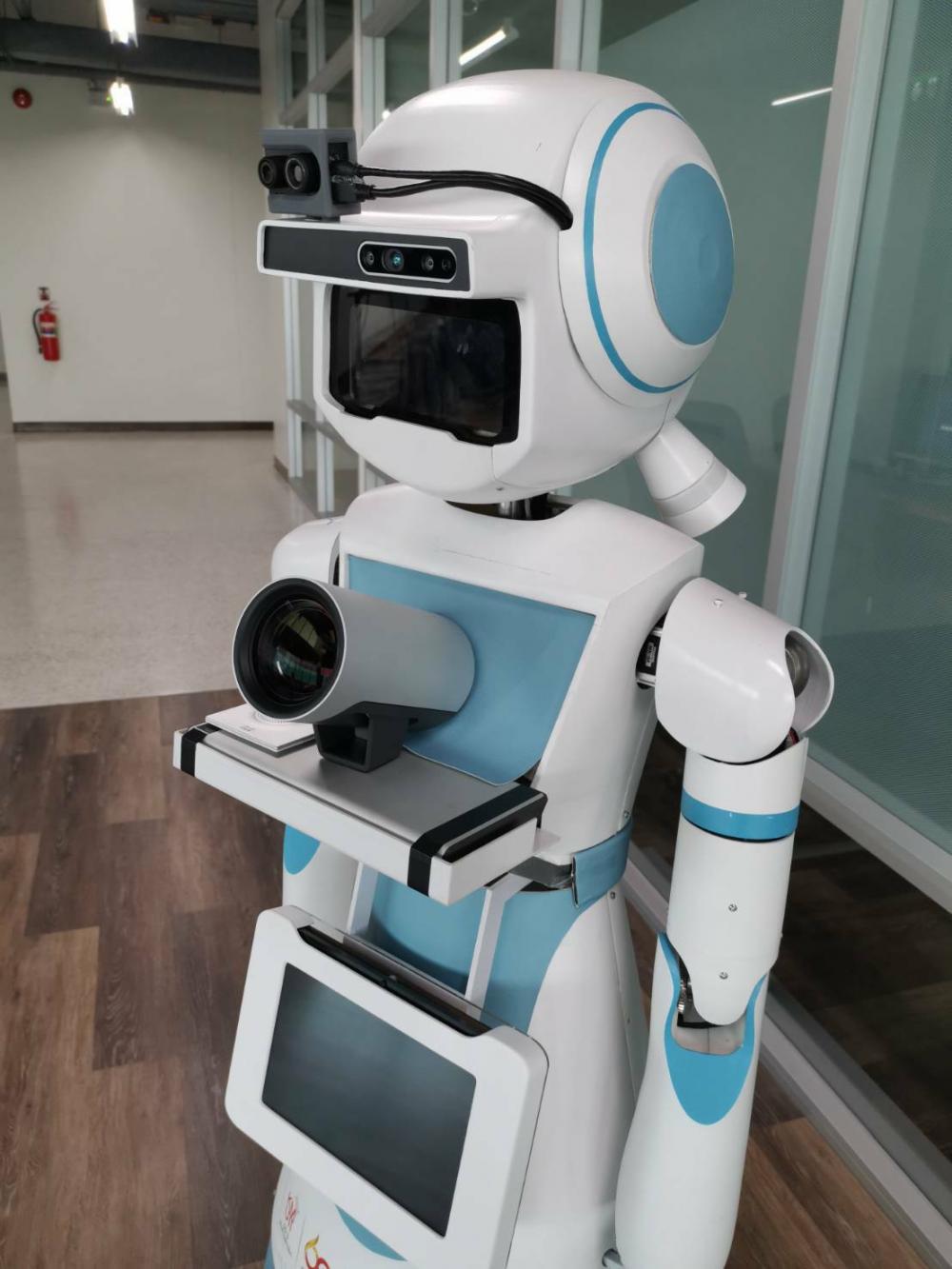The Institute of Field Robotics (FIBO) under King Mongkut's University of Technology Thonburi has launched the FACO robotic series to care for Covid-19 patients in hospitals, lowering the risk of contracting the coronavirus among healthcare workers.
FIBO founder Djitt Laowattana said FACO stands for FIBO against Covid-19 and the series comprises four prototype robots and a system platform that can be deployed at hospital wards to tend to patients.

SOFA is equipped with a thermal camera and a video conferencing system, and can carry food trays.
"We plan to deploy the robots in three hospitals: Ramathibodi Chakri Naruebodindra Hospital in early April, as well as Chulalongkorn Hospital and Queen Sirikit National Institute of Child Health," said Mr Djitt.
"The robots are designed for telemonitoring and communication between medical personnel and patients, helping frontline healthcare professionals ward off the risk of infection."
The first prototype, known as CARVER, is an automated guided vehicle, designed to deliver food, drugs and medical supplies to Covid-19 patients in hospitals. It can handle a payload of 150 kilogrammes in total and 30 food trays.
The robot is equipped with an air purifier and can sanitise the floor. The robot is projected to be used in hotels lodging self-quarantine cases and field hospitals, he said.
The second robot, called SOFA, can be remotely controlled to check people's temperature through a thermal camera. It is equipped with a high-definition video camera to check the eyes and tongues of patients.
Medical personnel can communicate with patients through the robot.
The third and fourth robots, which are more compact, are designed for medicine and food delivery in specific areas.
"We plan to make it possible for the robots to support 5G connection via TOT's 2600-megahertz and 26-gigahertz spectrum ranges, as well as leverage cloud computing to reduce costs," said Mr Djitt.
These four prototype robots cost 4 million baht, but in mass production the cost could dip to 2 million baht, he said.
The FACO system can show results drawn from artificial intelligence (AI) tools, namely Inceptra and the Huawei Diagnostics System, which perform AI analytic tasks using X-ray film and 3D CT scan images, respectively.
FIBO used its own funds from other projects and received financial support and equipment from 21 firms, including Cisco, Advanced Information Technology and Acer, to fund the robot prototypes.
Mr Djitt said the Thai Automation and Robotics Association, which gathers robot makers, will be contacted to produce these robots en masse. Other private firms will be contacted to donate robots to hospitals in need, he said.
In another development, True Corporation, Chulalongkorn University's Faculty of Engineering and startups HG Robotics and Obodroid Corp have introduced delivery robots that help prevent medical personnel from contracting the disease at hospital.
The robots use cloud computing via True's 5G network and can be remotely controlled, said Piroon Paireepairit, head of 5G working group at True. They also support telepresence communication between patients and medical personnel. The robots have been used in emergency rooms of Chulalongkorn and Ramathibodi hospitals.